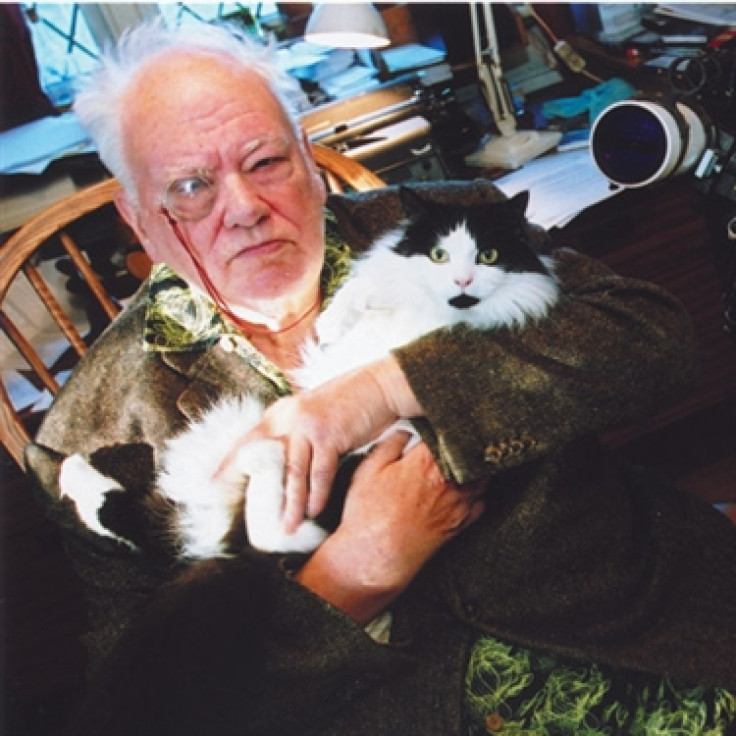Patrick Moore Dead At 89: Cat-Loving Astronomer Led Extraordinary Life

Patrick Moore, beloved UK television astronomer and science writer, has died at age 89.
Several of Moore's friends, including Queen guitarist Brian May, who collaborated with Moore on the book “Bang! The Complete History of the Universe” and “The Cosmic Tourist,” grieved in a note posted online Sunday.
“Over the past few years, Patrick, an inspiration to generations of astronomers, fought his way back from many serious spells of illness and continued to work and write at a great rate, but this time his body was too weak to overcome the infection, which set in a few weeks ago,” the notice said.
Moore passed away at home, surrounded by friends and his cat, Ptolemy. The astronomer, a noted animal lover, indicated that any memorial donations should go to the UK group Cats Protection.
May said that Moore was a father figure for him.
“Patrick will be mourned by the many to whom he was a caring uncle and by all who loved the delightful wit and clarity of his writings or enjoyed his fearlessly eccentric persona in public life,” he wrote.
The last episode of “The Sky at Night” before Moore's death, aired earlier in December, was devoted to the latest news from the Mercury, where NASA's Messenger probe has found evidence of water ice at the planet's north pole. Moore has been hosting the program since 1957, sporting his trademark monocle all the while.
Moore was born in March 1923 in Pinner, a village in England. He was beset by heart problems from a young age and was not able to attend school regularly. His early passion for astronomy was sparked by a book about the solar system given to him by his mother.
During World War II, Moore lied about his age in order to enlist and served as a navigator with the Royal Air Force, eventually attaining the rank of Flight Lieutenant. His fiancée, a nurse named Lorna, was killed in 1943 when a bomb hit the ambulance she was driving in London. Moore never married after that.
Throughout his career as a broadcaster, Moore published more than 60 books on astronomy and compiled the Caldwell Catalogue, a list of 109 bright celestial objects that could be observed by amateur astronomers. Moore had had an opportunity to study astronomy at Cambridge University but refused a government grant to do so, saying he preferred to “stand on my own two feet.”
Moore, who was knighted in 2001, sometimes courted controversy with his conservative views on immigration. The death of his fiancée and friends during World War II animated his intense dislike for Nazis, but he met German rocket pioneer Wernher von Braun and had some sympathy for him.
“Von Braun had had no choice but to join the Nazi party. But he was a very lukewarm Nazi, and, at one point, Hitler had him arrested for paying too much attention to the Moon than to weapons of war -- an accusation which was absolutely true!” Moore wrote in an essay for the BBC.
Throughout his life, Moore got to accompany Albert Einstein on the piano, interview astronauts and once shook hands with classical pianist Sergei Rachmaninov. When thinking about which figure he'd most like to meet, Moore wrote that he'd select famed comet discoverer Edmond Halley.
“I am sorry that he died over 180 years before I was born," Moore wrote. "His last act on Earth was to call for a glass of wine -- and drink it!”
© Copyright IBTimes 2024. All rights reserved.











